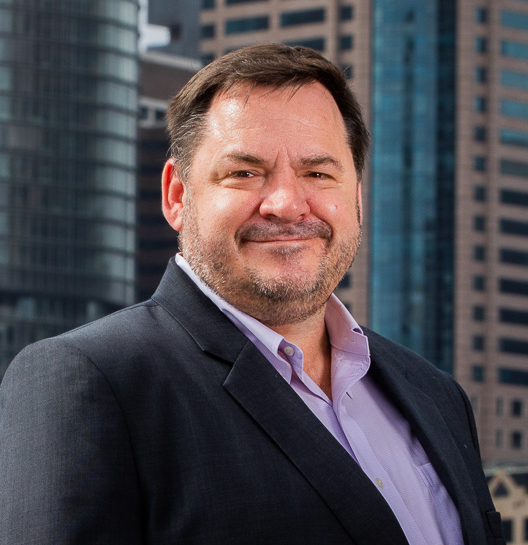On the lighter side of things, we ask Stephen Kowal, CEO of Atturra what makes him tick.

What would you describe as your most memorable achievement?
Back in 2005, I was working in BHP as CIO of Base Metals when as part of the acquisition of Western Mining Corporation (WMC) I got put in as the CIO of WMC. It was a $9.2 billion transaction and I was charged with leading the technology related integration of the two companies. We managed to roll one global operation into another – all good fun! – on time, slightly under budget and in less than 18 months. More recently, I headed up the team that took Atturra public in December 2021. It was the culmination of a three-year transformation program that saw the complete transformation of the business and grow significantly.
What first made you think of a career in technology?
As a kid, I loved all things high tech and my high school years were spent programming in the school lab. The first nine years of my working life were in the military – Army initially, and then the Airforce – and I picked up a science degree majoring in computing during that time. When I made the move to civvy street in 1997, it was for a commercial role in technology with Boral and I’ve been in technology related positions ever since.
What style of management philosophy do you employ with your current position?
Despite my background, I definitely don’t take a military approach. I’m quite situational – the opposite of a micro-manager – although if something’s going badly wrong, I will dive in. My guiding principles are to be fair, just and pragmatic and to not tolerate disingenuous people. My door is always open and I encourage collaboration; I’ve consistently found that’s the way to get the best out of people.
What do you think is the current hot technology talking point?
Artificial Intelligence. All solutions now incorporate it: it’s embedded in everything. The geek in me really enjoys observing the evolution of econometrics – I love the fact that predictive models which I worked on years ago, and which took hours and days to run, can now be done in seconds. I think Machine Learning is going to trigger a productivity revolution in the next few years and what we really need in Australia is more people studying the fundamentals behind it so we can maximize our use of these new capabilities.
How do you deal with stress and unwind outside the office?
My four kids are aged from 14 to 22 and all still at home, so family activities take up a lot of my time outside work. We love playing board games together, watching movies and boating on the Hawksbury – tubing is perennially popular with the younger generation! I’ve found my earlier career with the military helpful in terms of keeping things in perspective at work. What’s the worst thing that can happen in an office? The reality is that, if things go wrong, we fix them. As long as no one is at personal risk or going to be hurt then don’t stress it.
If you could go back and change one career decision, what would it be?
If I run a tally, there are arguably a million errors and many decisions that could have been made sooner but, given we’re all an accumulation of our experiences, there’s probably nothing I would do differently.
What do you currently identify as the major areas of investment in your industry?
Cybersecurity is an obvious one. In today’s times, it’s an evil necessity and we’ve seen decision makers becoming far more cognisant of the need to invest in robust protection measures. We’re also seeing companies spending a lot of money on taking friction out of the environment, to make the customer and employee experience better. The bulk of our advisory work is around simplification – using technology to make things easier. Everything else is secondary.
What are the region specific challenges when implementing new technologies in APAC?
Our focus is on Australia and New Zealand and they’re both pretty good. Companies here are open to experimentation and to exploring new technologies and solutions. For a medium sized company like ours, working with Australia’s biggest ICT spenders, the big four banks, is difficult, but I understand why, given the complex, highly regulated environment they operate in. Our other real challenge is people. It’s a global problem and the number of female STEM graduates is particularly low. The issue is at the school level – the subjects they choose in years nine and 10. Schools need to be encouraging girls to do the right sort of subjects, or at least not actively discouraging them. It’s way too late once people get to university.
What changes to your job role have you seen in the last year and how do you see these developing in the next 12 months?
It’s been a very unusual year but the main thing would be the complexities in managing people in a work from home environment, particularly younger people who need more guidance. At the same time, we’ve been going through a public listing process. In the next 12 months, the challenge will be managing in that listed environment. The level of governance, oversight and reporting is much higher and there are natural limitations on the things you can do. Instead of having a small set of stakeholders, you have thousands. I know the theory of the challenges having worked in the public environment, but there are still lots of learnings for me. The trick is to isolate the business from the pain of being public, by delineating the regulatory and reporting elements from the way you manage operations and people.
What advice would you offer to someone aspiring to obtain a C level position in your industry?
Be the best you can be at the job you’re doing and always do more than your job description demands. Move on to broaden your experience, not for a more impressive job title or a few extra dollars . And don’t do it too often; very few people in the networks I’m in job hop. You can get one or two mulligans if a role really is the wrong fit for you but generally aim to stay somewhere at least three years. Avoid playing politics – it’s an issue in every industry but if you focus on what you need to do, the rest will go away. And stay humble. When you look around the table and think everyone else is a fool, the fool is probably you!
Click below to share this article

